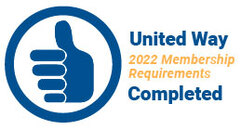|
Last time, we discussed the policies at the state and national level that are creating positive change related to substance abuse. In addition to those discussed last week, Indiana has also implemented these legislative and policy changes.
Aaron’s Law was passed in 2015, allowing Hoosiers to obtain a prescription for Naloxone if they believe someone they know is at risk of an opioid overdose. This was recently updated to allow individuals to purchase Narcan without a prescription at pharmacies. Some Medicaid and private insurance companies may pay for Narcan. Check with your insurance provider. Indiana's Aaron's Law also contains Good Samaritan provisions that offer some legal protections to individuals who administer Narcan and call 911 at the scene of an overdose. Grants are available to county health departments to provide training and increase the availability of Narcan to law enforcement and families with loved ones involved in substance abuse. The White County Health Department is participating in this grant program, providing training and Narcan to the White County sheriff’s department. Removing unused opioid prescriptions is another important step in combating the opioid crisis. As mentioned in previous articles, the White County Sheriff and Monticello Police Department have drug take back containers that are available 24/7 for the safe disposal of unused medications. They do not take sharps, syringes or liquids. Indiana Medicaid and HIPP are increasing coverage of MAT for substance and alcohol abuse allowing more people to access these services. In White County, the United Council on Opioids (UCO) was developed to coordinate efforts and services centered around opioid and substance abuse. The UCO includes more than seventy community members who are actively engaged in creating solutions to the local substance abuse crisis . These members are working in emergency medicine, law enforcement, health care, education, the judicial system, probation, mental health care, city government, health navigation, peer recovery, or are families of those involved in substance abuse, those in recovery, community agencies, health department, treatment and interested citizens. The UCO has three task force groups; prevention, treatment, and recovery. Each group has specific action oriented short-, mid-, and long-term goals. They are achieving their goals and making a difference in our community. They have completed a working directory of treatment and recovery support services, and obtained funding for a billboard campaign to promote prevention and awareness of substance abuse. They are working on prevention activities for local schools and protocols for helping people transition from jail, hospitalization, and treatment into long term recovery. In conjunction with these efforts, White County was selected to be a part of the North Central Quick Response Team, which begin services in September. Exciting things are happening nationally and locally to combat the opioid crisis.
0 Comments
Your comment will be posted after it is approved.
Leave a Reply. |
AuthorLynn Saylor is the AmeriCorps member working with the United Against Opioid Abuse Initiative alongside the White County United Way. She is a major facilitator of the United Council on Opioids serving White County and a regular contributor to local media. Archives
October 2020
Categories
All
|

 RSS Feed
RSS Feed
